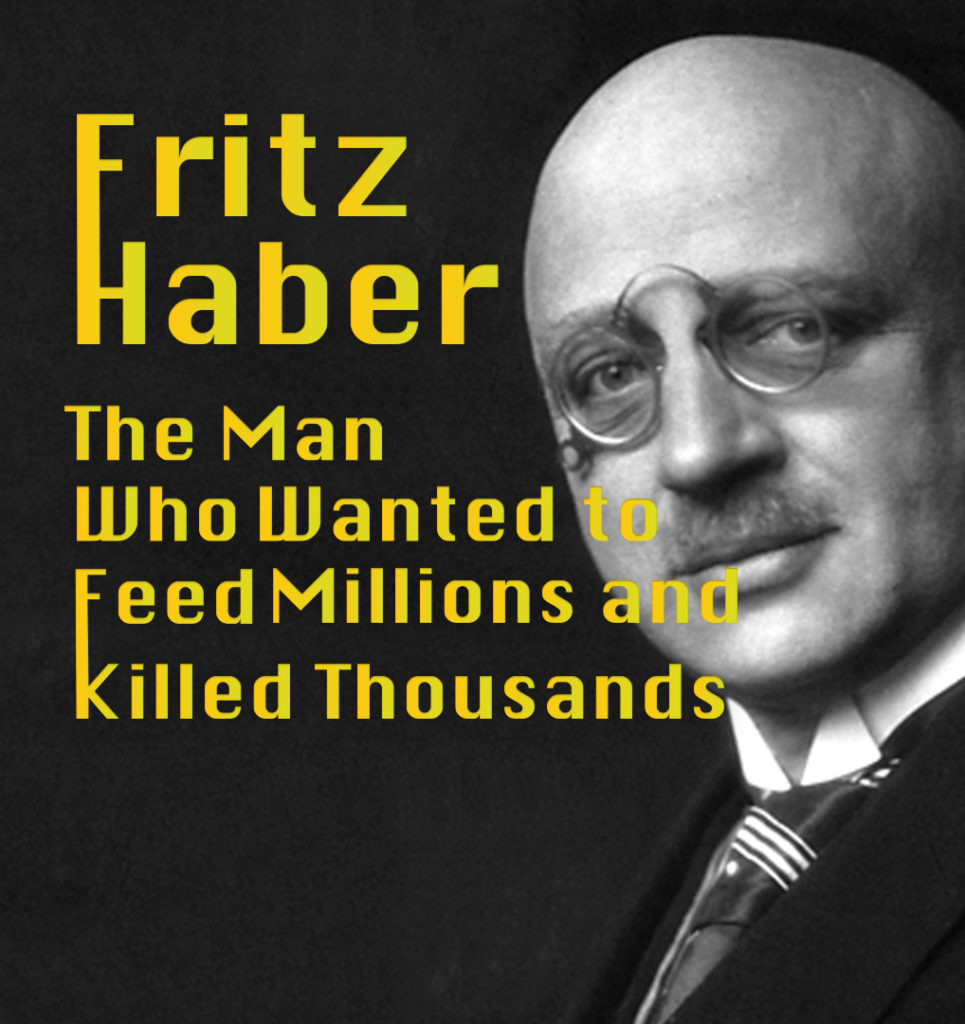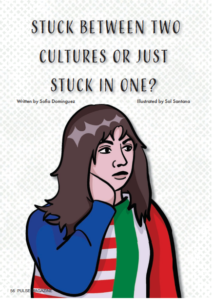Fritz Haber The Man Who Wanted to Feed Millions and Killed Thousands


By Francisco Zuloaga
1. The Savior?
0
year
In an act of apocalyptic prophesy, chemist and physicist, sir William Crookes explains to the British Science Association that unless science can find a way to produce two billion and a half kilograms of wheat, one sixth of the necessary bread to feed millions of British people would be non-existent by the next year.
Thousands are expected to starve, if so.
It is also foretold in this meeting that within a generation the food supply of the US, the major agricultural exporter of the world at this moment, will suffer a major deficit, leaving it unable to export and feed the rest of the globe.
Europe will be left in starvation. The future seems to loom over all souls in this planet. Yet the future is only a reflection of the past.
By the mid-19th century, guano, the compiled excrement of certain species of bats and birds, had become the major fertilizer of the world.
The astronomical demand for the product plus the limited supply of it, led to a series of conflicts between countries over who was going to be the one controlling the precious poop and other nitrogen-based fertilizers.
Said conflicts would culminate in the Chincha Island War (1864 – 1866) and the War of the Pacific (1879 – 1883). Around 20,000 men died, but this was nothing compared to what was yet to come.
0
year
The common people call it “bread from air”, the chemist’s “ammonia”; yet all can agree that the recent discovery of the Bosch-Haber process by which nitrogen is extracted from the air and combined with hydrogen, which results in the fertilizer ammonia, is nothing but a miracle.
0
year
Fritz Haber, the developer of the miracle process, is awarded the Nobel Prize of Chemistry. His process has saved countless lives and shutted down the apocalyptic claims of Sir William Crookes. Haber has brought a new morning to the world.
2. The Monster?
0
April 22
The Great War ravages across Europe. Thousands of soldiers die every day; hundreds of innocent people fill the ranks of rotten corpses. Humanity has never seen such an aberration against human lives.
Yet all these words are just a matter of reflection, a privilege, for those lucky enough to survive the massacre. The French and British troops now defending Ypres, west of Belgium, won’t be that lucky.
0
Hour
Huddled in their trenches, covered in mud and shit, finding comfort in romances and lives that will not be fulfilled, thousands of British and French soldiers hide from the rain of heavy artillery coming from the German side.
The incessant explosions and showers of debris are a constant reminder of their mortality. Some look to the sky and pray for relief, but the heavens remain indifferent.
Suddenly the shelling ceases. A deafening silence starts to reign over the landscape. The men prepare themselves. At any minute, the German soldiers will come and try to take the trenches from them. But only a silence is perceived.
A breeze comes. The 17th hour is upon them. A greenish mist approaches from the horizon.
0
Hour
One hundred and fifty tons of chlorine acid make their first entrance into the world. The poisonous gas covers four miles of the front. No soldier runs; none know what this mist is.
The gas starts to plunge itself into the body of thousands of soldiers, destroying every blood vessel it encounters. Eyes come out of their sockets. Lungs are filled with pus. Mouths become rivers of blood. 5,000 thousand men die.
On the German side, the developer of the new weapon and the man in charge of its use, witnesses the cemetery he has created. He has done this for his country– everything he has done in his life is for the progress of his country.
The code words used to deploy the gas… “May God punish England.”
0
May 2nd. Early hours.
After quarreling with her husband, Clara Immerwhar, the first woman to obtain a PhD in chemistry in Germany, commits suicide as a form of protest to what her husband has done and will continue to do.
Her husband has just killed 5,000 men in Ypres.
This is Fritz Haber – the father of chemical warfare.
3. A Life of Tragedy.
0
Year
Fritz Haber, the Jew, is spared to keep working in his laboratory due to admirable service to the German state. All other Jews are forced to quit their jobs as chemists.
Haber opposes the firing of his employees and relinquishes his position.
Haber dies in 1934, now known for being the father of chemical warfare. The Nazis find and transverse one of Haber last projects: Zyklon B.
0
September 3rd. Unknown hours.
German SS officers separate Polish prisoners into two groups– those who seem fit to continue working and those who don’t. Two hundred and fifty people fill the latter group.
They are crammed into a single line and forced to walk. People look around trying to find out what is going on. Armed Nazi guards encircle them. There is no visible escape. They are told that they would be taken to Block 11, for ‘special work’. Once they arrive there, they are ordered to enter the cellar.
They do so.
Six hundred Soviet prisoners join them in the overcrowded room. The doors are locked. The windows are blocked and a dreadful expectancy fills the air.
Eyes look around. Hearts start to beat faster. Other than that, everything is static.
A cracking sound is heard. In the ceiling, an aperture opens. Zyklon B pellets are dropped and the aperture is closed.
The Zyklon B pellets begin turning to gas. Everybody panics. There is no way out! Suffocation and final breaths begin. It takes about 5 minutes for it all to be over.
One of the greatest atrocities in human history has just been committed.
4. Further Thinking
0
September 30
Was the man a blessing or a curse for humanity?
This is the first question that occurred to me after reading about Fritz Haber. And the reason I chose to write about the man. A man who lived 65 years; 65 years full of plans, regrets, loves, events and sins; and yet, I’m judging him in 3 pages.
At the beginning of the last three sections I have written a title. A title, which seems to me, encapsulates the events described and gives a name to the ultimate role that Haber played in them. Yet, there is one I felt doubtful about – the monster?
Can I call a monster a patriotic citizen who created a superior weapon when his country was at war?
My morality tells me that no situation justifies the massacre of 5,000 men, but my more cold and rational self tells me that almost everything committed against enemy soldiers in battle (note that I’m specifying when in battle and to enemy soldiers) is justified by the fact that a state of war exists.
I now think that his actions regarding this event would be better classified as a necessary evil. Necessary for they are the required actions to reach swift victory during war, and evil for they disregard what morality dictates.
Therefore, no, I do not think he is a monster, for he did not commit something that was pure evil.
Still, after answering the past question, I feel I am still unable to find a resolution to my original question – was the man a blessing or a curse for humanity?
What are your thoughts?










